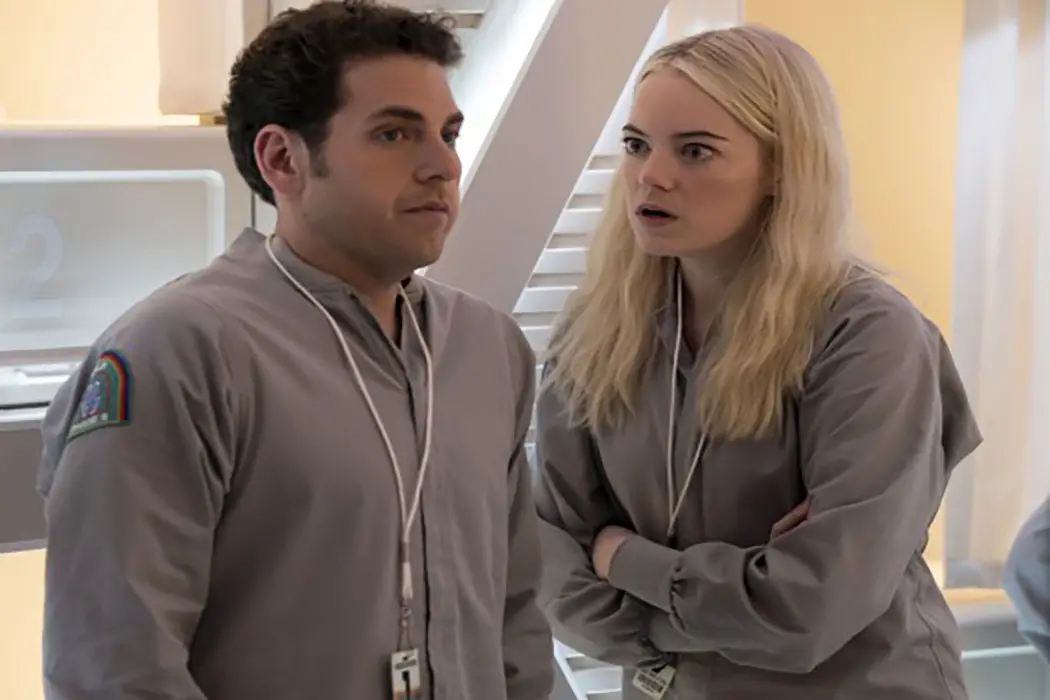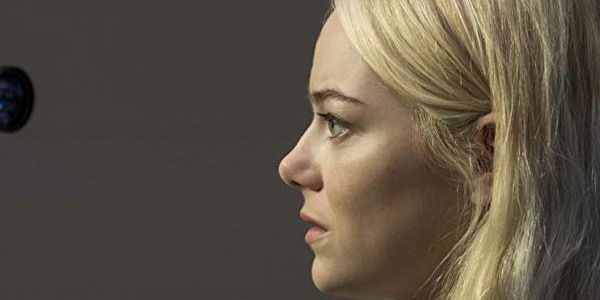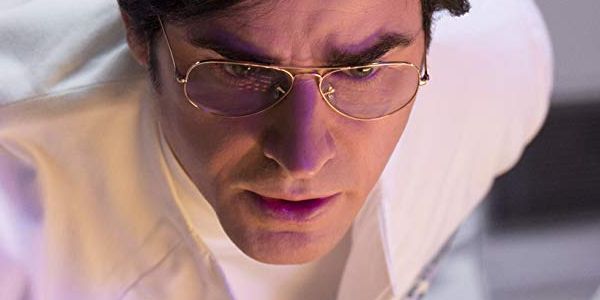MANIAC: Cary Fukunaga’s Focused Psychedelic Comeback Infiltrates Your Mind

23year-old multi-award winning filmmaker and writer from the UK, a…
After a four year hiatus, True Detective director Cary Joji Fukunaga returns to bring us Netflix’s Maniac, created by Patrick Somerville. Starring Jonah Hill and Emma Stone, their characters, Owen and Annie, are picked for a pharmaceuticals drug trial managed by Justin Theroux’s bizarre and lovable Doctor Mantleray. The mysterious company behind the trial, NPD, promise they can “fix the human brain”.
Expelling all mental illness, sending us and our two main characters into a life-changing psychedelic trip into their own minds. Maniac blends all conceivable genres and tones, in an unmistakably difficult balancing act set in an unknown retrofuturist timeline.
Talking Chess-Playing Teddy Bears
This premise alone is enough to lose a good chunk of audience, but Fukunaga honestly doesn’t care about what you understand as “real” or “unreal” within the show. Gifting us a similar experience to Owen’s schizophrenia, often confused by his surroundings. The world itself is chaos, but a sort of well planned, meaningful chaos. With Adbuddies (people who follow you around and try to sell you things) and talking, chess-playing teddy bears, this show isn’t concerned with what’s “sensible” or “normal”.

From the get go, you’re either on or off the train. Once you accept that literally anything is possible in Maniac, you’ll find yourself deeply invested in its sweet well-developed characters and the utterly absurd situations they find themselves in; which I might add – are directed with laser focus and skill by Fukunaga in all ten episodes.
Particles, Bumping and Grinding Together
It’s Fukunaga’s uniform approach to directing Maniac, that often makes it oddly confusing, he brings the same sensibility to every scene and episode, whether it’s a quest in a Lord of the Rings type world or a character simply sitting down to tackle their inner demons. Dan Romer’s music is often powerful, emotional and sometimes fun. In keeping with the show, he never plays for humorous or dramatic moments, it just is what it is, leaving the audience to think of it what they will. None of the artists behind the series are telling you how to feel, just objectively serving the story and the characters.
Which can be strange as an audience. We’re used to an upbeat motif playing over a funny moment or heavy strings to score drama but that’s what makes Maniac so deftly unique. It brings consistent filmmaking to a wild and unhinged story, therefore making any and every situation feel like a “real world” situation with real stakes, never mind how off the wall it may seem. Which is difficult to do with a show of this design.
“Annie, I’m a Hawk!”
This sensibility extends to the performances of the cast too, while Jonah Hill and Emma Stone are obvious stand-outs, especially, Hill, who manages to bring a deep sense of heavy sadness to every single one of his many characters, no matter how manic. Theroux and Mizuno bring a wonderful over-the-top playfulness as Dr. Mantleray and Dr. Fujita, that nicely opposes Sally Field’s often smart and sensible Greta Mantleray. Each of them poke and play with the series’ tone – creating something wholly new unto itself. However, the environment and clothing does much heavy lifting too – it’s a thoroughly strong effort from a production design standpoint, mixing so much so seamlessly together that Maniac’s look is completely unique to its tones and big ideas, like retrofuturism.

“Utungatta.”
Which brings us to the result of Maniac’s ten episode season. It’s a lot to take in, in fact, I’m pretty sure it’s too much to take in all at once. I advise you don’t try and binge this, even though the episodes are invitingly short. Nevertheless, if you do – give it a rewatch afterwards and see how you feel. The show’s core themes of connection in chaos, an acceptance and open understanding in mental health and finally, the value of true friendship, become quite obviously apparent when rewatching (which is very possible with a Netflix account). Everything you see, hear or experience in the series is sporadically repeated and sprinkled throughout all the episodes; nothing is really as random as it seems. Which may be the point Fukunaga is trying to make with connection and chaos.
Overall, anything that requires this much attention and reaction, whilst still being new and fresh, is a triumph for TV. Especially in an era when everything is going for new and fresh.
Have you seen Maniac? Tell us your thoughts in the comments below!
Maniac is currently streaming on Netflix.
Does content like this matter to you?
Become a Member and support film journalism. Unlock access to all of Film Inquiry`s great articles. Join a community of like-minded readers who are passionate about cinema - get access to our private members Network, give back to independent filmmakers, and more.












